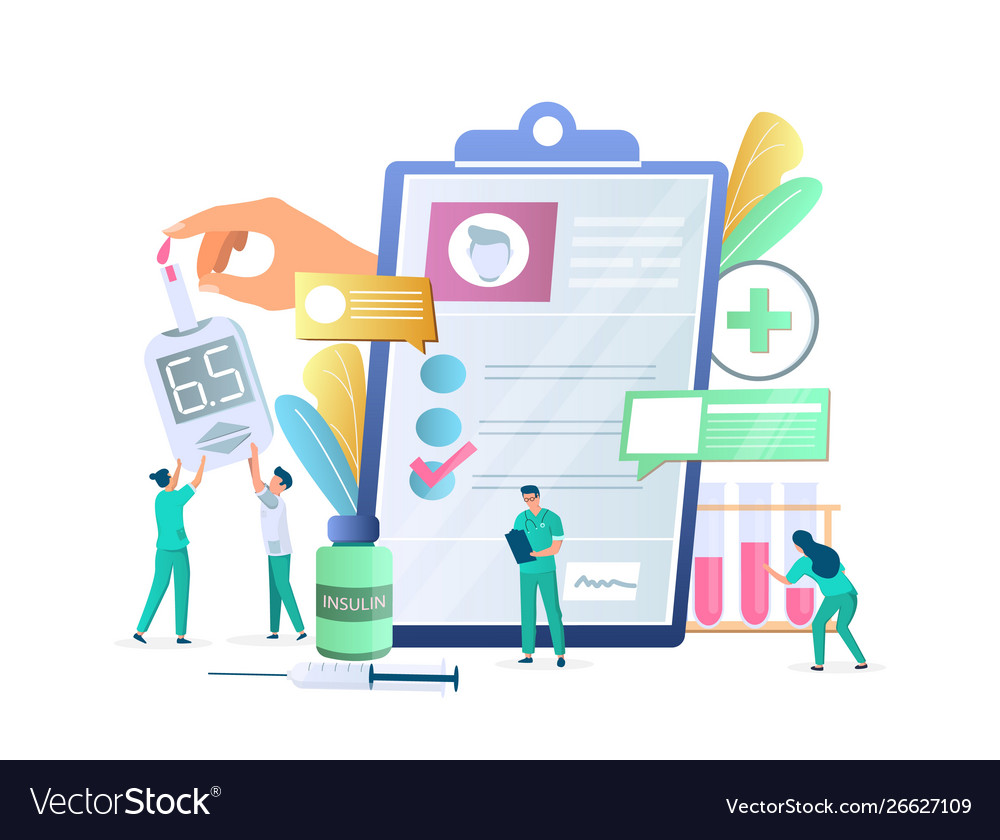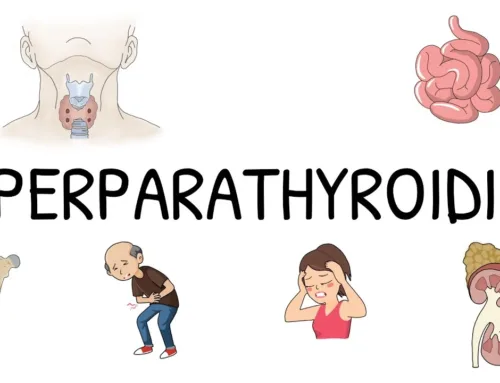
Source: UtahDepOfHealth
Are you a diabetic that needs help with your diet? Are you suffering from diabetic retinopathy and don’t know how to control it? Do you need medical attention related to your blood glucose? Do you know a few people that suffer from diabetes?
Because everyone is prone to diabetes nowadays, the only way to control diabetes is through education.
Diabetes is the leading cause of death in the world, according to the American Diabetes Association. There are approximately 26 million Americans who are alive today and suffering from type-2 diabetes, which is most often caused by obesity.
If you or your loved ones suffer from this disease, then you need to read through this blog about diabetes self-management education.
What Is Diabetes?

Source: VectorStock
Diabetes is a disease in which your body doesn’t produce enough insulin or can’t use the insulin it produces effectively. Insulin is what allows your body to move sugar from your blood into your cells, where it’s needed for energy production. The pancreas produces insulin when there’s an increase in sugar in the blood, such as after eating food. If you don’t have enough insulin, any excess sugar will build up in your bloodstream instead of being used for energy production. This can cause type 2 diabetes over time if left untreated.
What Is Diabetes Self Management Education?
Diabetes Self Management Education (DSME) is a program that aims to help people with diabetes learn how to manage their condition. The program involves a series of classes and workshops that can be taught by either a nurse or a trained volunteer.
How Does Diabetes Self Management Education Work?

Source: VectorStock
Diabetes self-management education is a structured educational program that can help people with diabetes to take control of their condition. It teaches you how to manage your diabetes, including what foods to eat and when, how much physical activity you need, how to recognize the warning signs of hypoglycemia (low blood sugar) and hyperglycemia (high blood sugar), and how to test your blood sugar level, and how to take care of any complications that may arise from the disease.
People who are newly diagnosed with type 1 or type 2 diabetes may need more than one session of diabetes self-management education. Typically, people with type 1 diabetes will have three sessions over 6 months with a registered dietitian (RD) certified in diabetes education. People with type 2 diabetes may have four or five sessions over 12 months with an RD certified in diabetes education.
Once you’ve completed the sessions, your health care provider will give you information about continuing your diabetes self-management education at home with written materials or online resources. You will also receive a free copy of Diabetes Forecast magazine each month for up to 2 years after completion of the program.
5 Important Things You Need To Know As A Part Of Diabetes Self Management Education
The goal of diabetes self-management education is to help you:
- Develop an individualized program that will enable you to manage your diabetes and live a healthy life.
- Learn how to manage risk factors like high blood pressure, high cholesterol, overweight/obesity, and physical inactivity.
- Understand the importance of exercise and healthy eating habits as part of managing your condition.
Your doctor will work with you to develop an individualized program that includes the following topics:
1. How Does Diabetes Affect Your Body?

Source: VectorStock
Diabetes is a chronic condition that affects the body’s ability to produce or respond to the hormone insulin. Insulin helps the body use glucose (sugar) for energy. When there is too much glucose in the blood, it can damage the blood vessels and lead to heart disease, stroke, kidney disease, nerve damage, and other complications.
It also increases your risk of blindness by half if you have diabetes and don’t control it well enough. Diabetes also puts you at greater risk for developing other health problems such as eye problems like cataracts and glaucoma (increased pressure in the eye).
Diabetes is a serious disease that can lead to some very serious health problems if left untreated. The best way to manage diabetes is through self-management education. This means learning more about diabetes, how you can control it, and how you can prevent complications from occurring.
2. What Risk Factors May Increase The Chances Of Developing Diabetes?

The following are risk factors for diabetes:
-
Age
The older you get, the greater your risk of developing type 2 diabetes.
-
Race And Ethnicity
African Americans, Latinos, and Native Americans have a higher risk of developing type 2 diabetes than Caucasians.
-
Family History Of Type 2 Diabetes
If you have a parent or sibling with type 2 diabetes, you’re at greater risk of developing the disease yourself.
-
Obesity
Being overweight increases your risk of developing type 2 diabetes because excess fat cells in the body produce hormones that increase the amount of glucose circulating in your blood.
-
Physical Inactivity
Lack of exercise is the most common lifestyle factor associated with type 2 diabetes; regular physical activity helps control weight and improves insulin sensitivity and glucose tolerance (the ability to clear glucose from the bloodstream).
3. The Importance Of Regular Physical Activity And Healthy Eating Habits.

Source: VectorStock
Regular physical activity is important because it helps to control your weight, which in turn reduces your risk of developing diabetes and cardiovascular disease. Exercise also helps to increase blood flow to the heart, which improves blood pressure control. Besides helping with weight management, exercise can help reduce stress levels, improve mood, and increase self-esteem!
Eating a balanced diet is also important because it helps you feel full longer so that you don’t overeat or snack between meals. A balanced diet contains all of the nutrients (vitamins, minerals) necessary for good health without too many calories from fat or sugar. This combination leads to obesity if consumed regularly over time.”
4. How To Monitor Blood Sugar Levels And Use Medications Properly?

Source: VectorStock
Blood sugar levels are usually checked at least two times a day. The test must be performed on an empty stomach when the blood sugar level is at its lowest. The best time to take the test is between 4 and 6 o’clock in the morning, before breakfast. After taking the glucose test, it is necessary to wait 20 minutes for the result. If the results are within normal limits (70-110 mg/dl), then it is possible to eat breakfast, but you must not eat anything sweetened with fructose or alcohol (up to 3 glasses of wine).
If your blood sugar level is higher than 120 mg/dl or lower than 70 mg/dl, then you should immediately eat something sweetened with fructose or drink some juice without gas from fruits or vegetables.
Suppose your blood sugar level does not return to normal after eating or drinking something sweetened with fructose, and you take insulin injections for diabetes mellitus type 2. In that case, it is necessary to take 1 more dose of insulin and perform another glucose test in 30 minutes.
5. Treatment Options For The Diabetes

Source: VectorStock
There are several treatment options for diabetes. You may be asked to take one or more of the following types of medications:
-
Metformin
This medication helps to lower blood sugar levels and can also help preserve kidney function in addition to weight loss and exercise.
-
Oral Hypoglycemics
These include sulfonylureas, glinides, and meglitinides, which stimulate the pancreas to release more insulin. These medications may cause low blood sugar if not taken with food, but they have less risk of weight gain than other oral agents.
-
Insulin
If diet, exercise, and oral medications do not work sufficiently well, then insulin injections will be necessary.
-
Short-Acting Insulin
This type is taken before meals and has a very fast action time. It starts working immediately after you inject it into the body. As it starts to work quickly, it’s important that you eat something right after taking it.
-
Long-Acting Insulin
This type works slowly and lasts longer than short-acting insulin, which means that you can take it at any time of day and still get the same effect on your blood glucose levels. Long-acting insulin may also be mixed with short-acting one so that there is less chance of low blood glucose levels during sleep or exercise (euglycemia).
Other than medications, other treatment options include:
-
Eating A Healthy Diet.
This includes eating less fat and more fiber, whole grains, fruits, and vegetables. It also means limiting portion sizes and choosing low-fat dairy products instead of high-fat ones.
-
Exercising Regularly.
Find an exercise program that you enjoy and stick with it. Regular physical activity helps keep your weight down, lowers your blood pressure, and improves your cholesterol levels — all of which can reduce your risk of developing diabetes or make it easier to manage if you already have it.
-
Quit Smoking
Quitting smoking if you smoke — even a few cigarettes a day — increases your risk of developing type 2 diabetes. Quitting smoking also reduces the risk of heart disease and other consequences of tobacco use.
Conclusion
Diabetes self-management education is an effective approach to managing your diabetes. Addressing the emotional, social, and physical needs of you or your loved one can help prevent complications and make life easier.
There are a lot more things you can do to lessen or even prevent the complications caused by diabetes. Studies have shown that self-management education for patients with Type 1 diabetes can be followed by better adherence and improved outcomes.
All of these efforts can be called diabetes self-management education. A good diabetes care team will help you learn how to manage your condition, but the end goal is to teach you how to help yourself.
Visit our website Houston Endocrine Center to get in contact with us. Our endocrinologist has the best suggestions for you!




[…] You should also read Diabetes Self Management Education – All You Need To Know […]